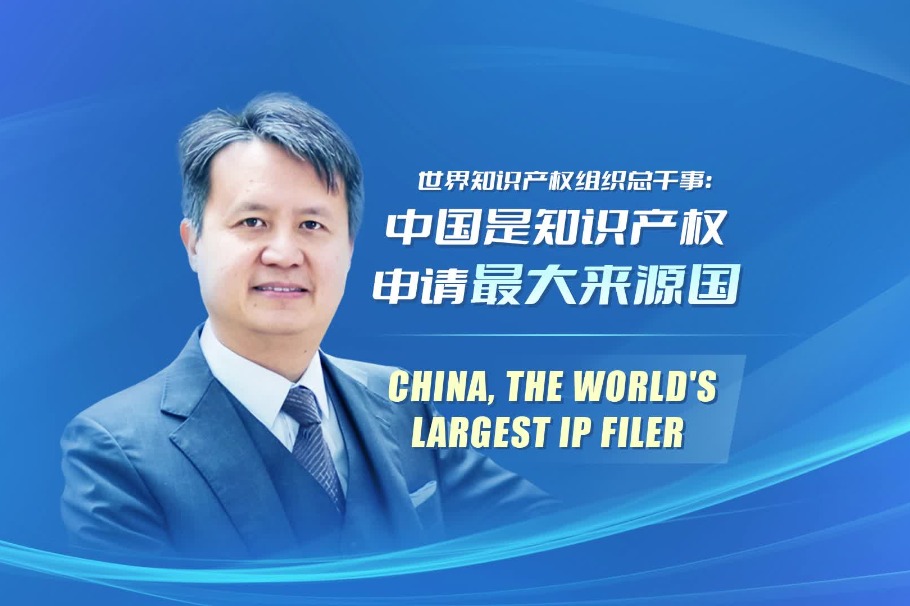More overseas IP cases resolved in China

More overseas litigants are choosing to resolve international intellectual property disputes in China, according to a recent report. This shows that foreign innovators are increasingly recognizing the legal protection for IP rights in China and are confident in its market, experts said.
According to the annual report issued by the Intellectual Property Court of the Supreme People's Court, the country's top court, at the end of last month, 457 new cases involving overseas entities were received, an increase of 4.6 percent year-on-year. The English version of the report was made available online on Tuesday.
The number of cases in which all parties are foreign entities has also been on the rise, indicating that China has progressively become one of the preferred venues for international IP litigation, the report stated.
While strictly abiding by international rules, the IP Court protects all litigants, regardless of their origin, in an effort to foster a market-oriented and law-based international business environment, it added.
"IP disputes between foreign entities heard in China are usually administrative litigation, meaning the cases where Chinese authorities in charge of IP affairs are involved," said Kang Lixia, an IP lawyer at Beijing's Hanray Law Firm.
In general, a foreign party turns to a Chinese court if it believes its patents or trademarks are damaged by another foreign party in the country, and it disagrees with IP decisions made by Chinese authorities, she explained.
"The rise in cases reflects the increasing trust foreign rights holders place in China's judicial IP protection. It might also mean that they feel China's IP protection is good, so they prefer to settle disputes here," she added.
Liu Bin, an IP lawyer from Beijing's Zhongwen Law Firm, said the increase in IP lawsuits involving overseas entities, especially those between foreign parties, demonstrates that China remains an attractive market for foreigners, and that they are optimistic about the country's economic potential and are willing to expand businesses here.
In one of the cases, Apple Computer Trading (Shanghai) Co applied to the China National Intellectual Property Administration to invalidate an invention patent granted to Qualcomm, but the administration decided it should be maintained.
The Shanghai-based company, which is a subsidiary of US tech giant Apple Inc, then sued the administration and Qualcomm at the Beijing Intellectual Property Court. After the trial, the intermediate-level court rejected the company's claims, prompting it to appeal to the top IP Court.
The latter upheld the original verdict and identified the patent as valid, noting that in addition to considering a technology's creativity, the synergy between technologies should also be considered a form of creativity.
Liu said the case involving two international tech giants demonstrates the stronger determination and greater efforts of Chinese courts in protecting IP rights and creating a world-class business environment.
To serve opening-up and help China participate in the reform of global governance, the IP Court also increased international exchanges last year, including compiling a guideline on patent case management with the World Intellectual Property Organization and encouraging judges to attend international IP-related forums and seminars.
The report underscores that the measures contributed to implementing the central leadership's requirement to take a coordinated approach toward promoting the rule of law at home and in matters involving external affairs.
Furthermore, the IP Court accepted 1,338 disputes related to strategic emerging industries last year, including those involved in information technology, biomedicine, high-end equipment manufacturing and new plant varieties. These accounted for 30.4 percent of all cases received last year, 3.5 percentage points higher than that in 2021.
Liu said the rising number of cases "is an indication of rapid growth in these areas", as problems and IP disputes usually follow technological advancement.
Kang said that more companies and innovators are willing to invest and develop in China because of the efficiency of Chinese courts.
The national-level IP Court was set up in Beijing in January 2019 to deal with civil and administrative appeal cases over patent issues and difficult technologies, and it helped streamline the appeal process by allowing litigants to bypass provincial courts and appeal directly, she said.
In other words, litigants unhappy with rulings made by intermediate courts at the city or prefecture level, or by other specialized IP courts at provincial high courts, can go directly to the top IP Court.
Kang said this streamlined process of hearing IP cases "helps prevent inconsistencies, improves the quality of trials and optimizes the law-based environment for science and technology innovators".
She added that she believes improved judicial efficiency is a boon for new businesses. "The quick resolution of disputes allows market entities to invest in a fresh round of research and development as soon as possible, thus facilitating the creation of more new technologies."




